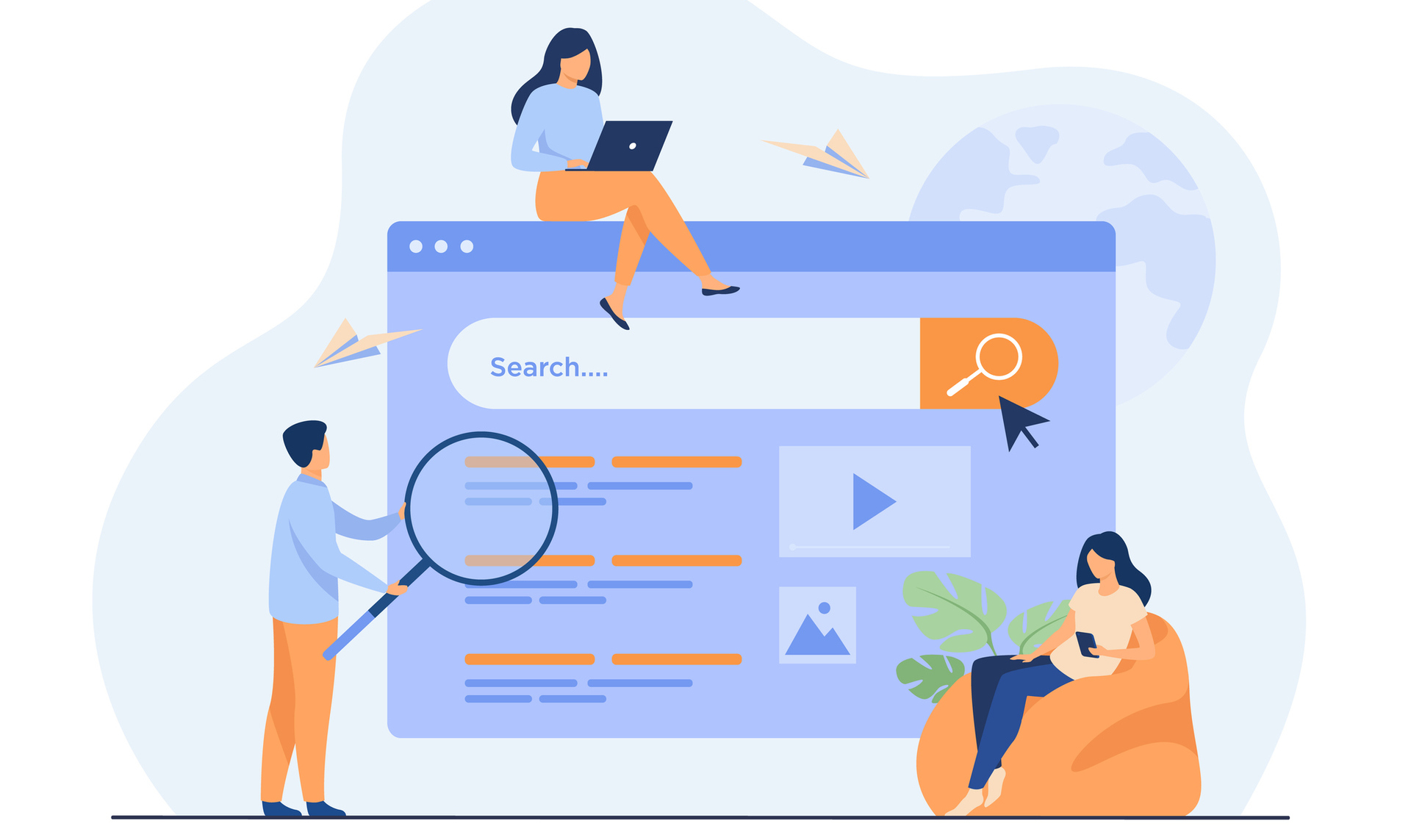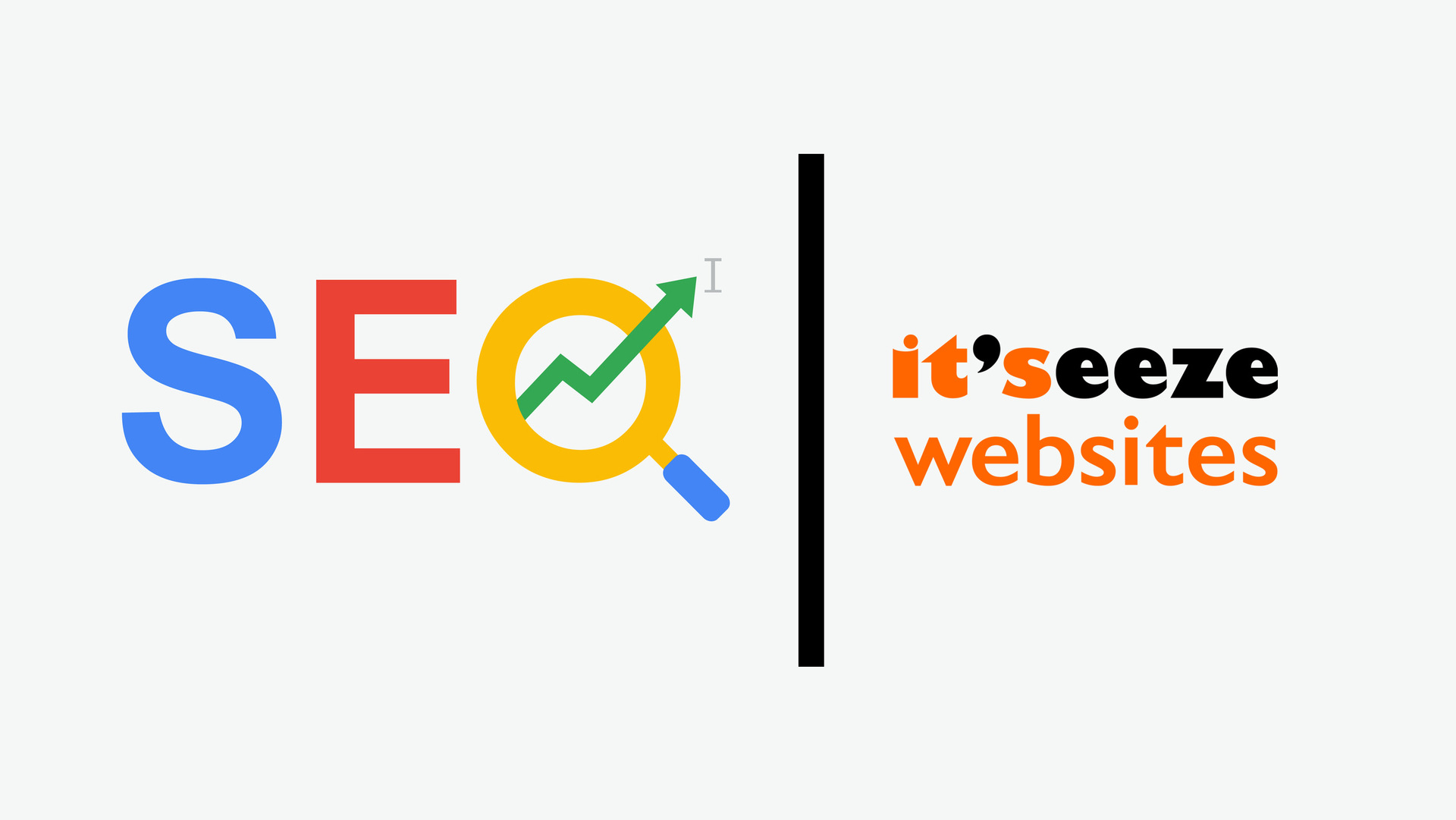10 tips for SEO Success
Published on 5th August 2022
Did you know, you can still visit the first ever website, created over 30 years ago on the 6th August 1991? It's dedicated to information on the World Wide Web project and was created by the iconic Tim Berners-Lee. Around seven years later, SEO became a known concept, coinciding with the debut of Ask Jeeves search engine, whilst a lesser known Google.com was quietly being registered in the background.
SEO - just in case you still don't know - stands for Search Engine Optimisation and is the practice of optimising your website to rank higher on search engine results pages (SERPs) so that you receive more traffic.
In 2000, Google replaced Inktomi as the provider of search results to Yahoo! The end result: every Yahoo search result said “Powered by Google” and they ended up introducing their largest competitor to the world and Google became a household name.
Let’s get it straight, Google isn’t the only search engine, there are many others, such as Microsoft Bing, Russia's Yandex, China's Baidu or Ecosia - who offer 'A better planet for every search'.
For today's blog, we'll just be focusing on how Google works when we talk about search engines.
Did you also know, that as of January 2022, roughly 91.9% searches were on Google?
Table of Contents:
How do you optimise your website for SEO?
There's no point spending time and money on a new website if Google doesn't see the value in ranking it. This is where SEO comes into play. When your website is optimised for search engines, your business is far more likely to appear higher up on the list of SERPs that are displayed when people search online for businesses like yours.
First 5 SEO tips
Publish relevant, authoritative content - You want to be publishing valuable information that your target audience/website visitors will appreciate and find educational.
Update your content regularly - Keep your site refreshed and up-to-date with the current world.
Don't forget-a the meta - Ensure titles and descriptive metadata are relevant and unique for each page, include your keywords naturally within the page content and headings.
Have a link-worthy site - When Google sees other authoritative sites are linking to you and you're linking to them, this tells Google that the page is worthy of being ranked at the top of results.
Use alt tags - Describing images or videos on your website is crucial to help Google understand what is contained within (and for users of screen readers or text only browsers).
If you want to learn more about what SEO is, and better understand the terminology used in this post, check out our search engine optimisation glossary to find out the key terms that you need to know.
SEO may seem like a daunting task, especially if you are a small business owner with limited technical knowledge, but with our simple website optimisation tips you’ll be able to boost your presence in local search results in no time! Fancy a chat with someone to discuss more in depth SEO? Get in contact today.
How does Google rank search results?

Google uses a number of ranking factors to provide the most relevant content for a particular search term. However, before this happens, search engines need to crawl and understand what is on each website’s page so it can provide a quick, useful results page for the browser.
Crawling
Crawling is the process for the search engine to understand what information is on a webpage. These little crawlers don’t have eyes so cannot look at the images like a customer would, this is why it’s important to include alt text for non-decorative imagery on each page!
Think of it like walking through the supermarket, you need to walk down the aisles and look at products and see the selection before you know what you want. In the same way, search engines use web crawlers as their little robotic helpers to browse the internet for pages, then they store that page’s data to use in future searches.

Indexing

At it'seeze, we think of indexing like Google's big library of all the web pages that have ever been crawled! Once the bots have looked at the content on each of your pages (including the URL, title tag, headings, links, and more), the search engine provider takes all of this information to build what is called an index.
Google organises information in the library so then when a search is made, it is able to provide fast responses to the user’s queries. Once Google has crawled and understands the content of each page, the search engine can now use the information it has about these pages and their content to show to relevant searchers.
Ranking
Every page that gets crawled and indexed, Google forms an opinion, which considers the page authority, usefulness to the end-user and many more factors. In fact, the algorithm has over 210 known ranking factors, which it orders together in SERPs.
Here are some of the most important factors to ensure you have covered, in order to perform the best within search:
Website Loading Speed



What free tools can I use for SEO?
There are hundreds of great SEO tools out there. Here are some of our favourite free SEO tools:
Google Keyword Planner - Discover search volume trends and historical data of different keywords.
Google Search Console - Lets you easily monitor server errors, site load issues, find what is being searched in order to see your site.
Google Trends - Great for keyword research, and for becoming familiar with trend variations, discover the stableness of a search term.
Google Analytics - Investigate the right platforms for marketing, understand your most visited pages and improve the bounce rate of your site. Check out our blog on upgrading to Google Analytics 4.
Screaming Frog - Great for finding broken links, duplicate content, missing titles and descriptions.

Next 5 SEO Tips
There are many ways to improve your positon in the search engine results page (SERP's). Here are five more of our best practices:
BLOG, BLOG, BLOG - Blogging is a great way to populate keywords across your site. Regular blogs really do help as Google loves fresh content and is more likely to rank your site higher.
Do your research - As detailed above, there are amazing SEO analysis tools out there which will help you find the search volume of relevant keywords, meaning you can bring more traffic through to your site as you know exactly the phrases that are being searched.
Google loves backlinks - Reciprocal links allows Google to recognise your site as trustworthy. Get in touch with other sites and explain why linking to one another may benefit you both!
Keep an eye on your competition - Keeping track of your competitor's keyword rankings will allow you to understand your sites keyword performance within the wider search context.
Patience required - SEO isn't a fast-moving process, it's a long-term strategy. You can spend a lot of time updating your site but it may not reap results for months. Trust us, SEO does work!
“Successful SEO is not about tricking Google. It’s about PARTNERING with Google to provide the best search results for Google’s users.”
– Phil Frost, Main Street ROI

What are the benefits of incorporating SEO into your site?
People are searching for your products/services online, help them find you!
Increased quantity and quality of traffic through organic search
Increased leads and enquiries
Improved brand awareness
Top SEO rankings provide free 24/7 promotion
By following these SEO tips from us here at it'seeze, you’ll be able to improve your website for customers, grow your company’s presence in local search listings, and take your small business to new heights online.
Want to know more about improving your company’s performance online?
Contact us today to find out how our professional and affordable web design services can help you.
Tagged as: search engine optimisation (SEO)
Share this post:



